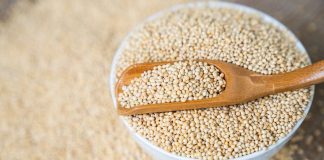With the frenetic demands of today’s world, eating has morphed from a way to nurture our bodies with wholesome and healthy food to a poor and hap-hazard intake of those ingredients closest to us, irrespective of their nourishment value. For some of us, this goes a step further. Think about it. Have you ever found yourself reaching for a candy bar right after a full lunch? Or heading for the snack vending machine right after a stressful meeting? Or eating because you have nothing else to do?
All of these are types of stress eating, or emotional eating. Only 27% of adults have admitted to eating manage stress, but data indicates that a lot more, a whole lot more of the adult population eats as a result of stress, without even realizing that they are doing so.
When food is consumed without any instinctive triggers from our physiological systems, the result is always the same – weight issues, health problems, and a profound inability to find food satiating, which leads us into the vicious circle of eating even more.
How to recognize if you have a stress eating problem
Keep a food journal. The simplest way to recognize if you have an eating issue is to keep a meticulous account of everything you eat, including beverages such as tea and coffee. Equally important is note – next to every entry – how you felt while eating, as well as after: whether you felt full and happy or irritable and empty, for example.
How to address an eating issue
Purge. The first step is to look at your diary and see which are the foods that trigger your hunger, or which foods you reach for first when you feel stressed. If those foods are healthy, and its highly unlikely that they are, then it is still a non-issue. But if you find those to be sugar-rich, oily, or otherwise calorie-high and low on nutrition, then out they go. Resist the urge to tell yourself you will exercise more self-control. If they go right out of your life, that’s the best first step you can take towards managing your eating issue!
Substitute. Find a healthy alternative that you can get your hands on easily when the urge to eat hits you. Salad carrots, protein bars, a handful of nuts or some fruits (which also do double duty by giving your bad mood a much-needed sugar spike) are all good foods to have on hand.
Plan your meals, and then plan some more. Once you’ve taken care of the unscheduled and compulsive eating, turn your focus towards your regular meals. Load them up with sufficient sources of energy to keep you going through the day. Remember, some level of carbs is often necessary for many of us to get our needed amounts of energy, so make sure you include those. Include the required amount of every food group – proteins, fats (ghee or clarified butter is a good source of healthy fat), plentiful water, as well as vitamins and minerals.
Put your plan into action. Make eating healthy a fashionable, and happy endeavor. Shop for healthy, fresh organic food, buy a set of bright plates and cups to prep and serve your fresh-cooked food. Set aside a half hour everyday so you can reap the rewards of freshly made food (it’s one investment of time that has immediate rewards, and one that you won’t regret for even a minute).
Stress eating is a serious issue plaguing many of us today, irrespective of age. But with a little planning and some discipline, it can be easily turned around – in such a way that we eat as we are meant to – to strengthen our bodies, energise our minds and enrich our lives.
47 Most Famous Motivational Quotes of All-Time
49 Greatest Love Quotes
37 Inspirational Quotes that Will Change Your Life






























